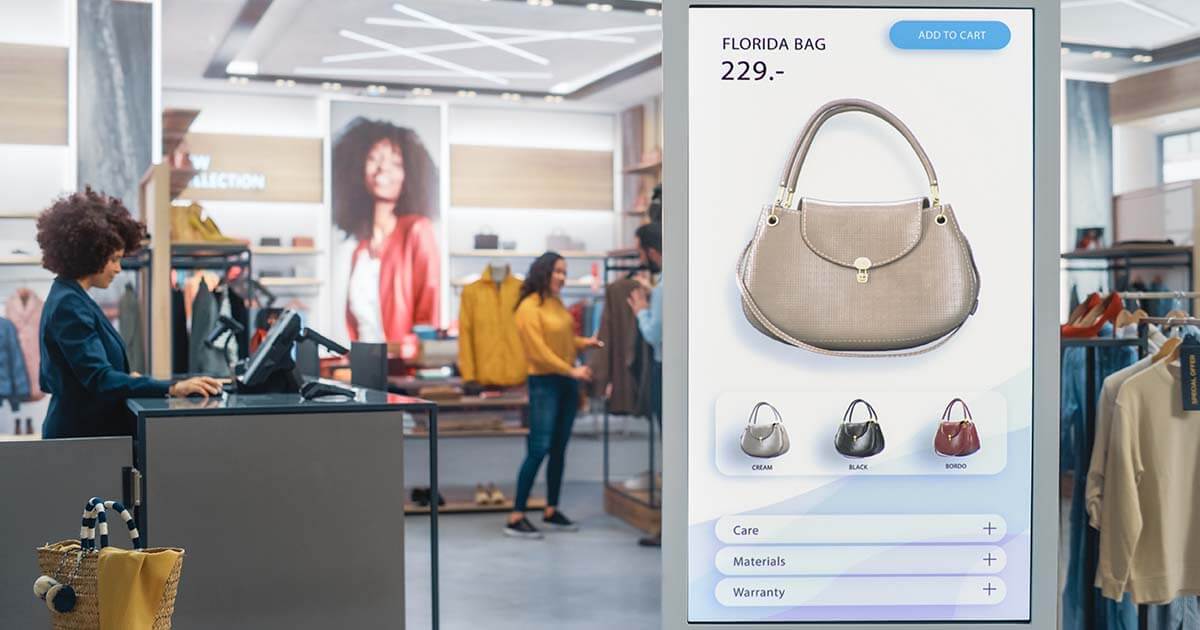
“We have moved on from omnichannel,” Justin Honaman, Managing Director with Accenture, recently wrote in RIS News. “It had a good multi-year run as the holder of the coolest-retail-word-ever award. Even analytics, big data, and digital marketing have taken a subtle step back to make room for the hotter trending topics.”
As NRF’s January 14-16 NYC BIG Show will reveal, many of those trends will hit retailers squarely in the store. Education sessions across multiple tracks will address retailers’ opportunity to attract and forge long-term relationships with new customers and deepen existing ones by leveraging the advantages of brick and mortar locations. Retailers will do this by dazzling consumers with shopping as entertainment, enhanced and exclusive events and services and a streamlined buying experience that makes store visits more about enjoyment and discovery and less about the mechanics of transactions.
Growing Store Tech Stack
Those changes are exciting, but also demanding, Retailers will need a robust, multilayer technology stack that supports a proliferation of devices to collect data and deliver personalized results and experiences in real time, backed by ever-more-sophisticated analytics and machine learning.
That makes now an important time to get store networks, tech deployment strategies and robust support infrastructure in place, because post-NRF, many of these technologies are likely to appear on retailer store roadmaps, if they’re not there already.
AR and VR
Assisted and virtual reality not only bring a cool factor, but present an unrivaled opportunity for brands to capture consumers’ undivided attention. Already, retailers are using these technologies to help shoppers do things like see a kitchen design in 3D or virtually whisk downhill in the skis they’re trying out. In addition to investing in VR/AR equipment and content solutions ― if these are not supplied by partners ― retailers will need the bandwidth and computing power to support potentially multiple AR/VR entertainment centers throughout the store, and first-line support to address technical issues and avoid disappointing customers.
IoT
The key to making the store experience more exciting, seamless and personalized is to sense and respond to each consumer’s unique interests and needs ― including the need to find desired products in stock. Internet of Things beacons/sensors throughout the store allows customers to scan a product to get product information, see customer content and determine inventory availability.
By detecting demographic characteristics, sensors can also be used to deliver targeted content and promotions (and possibly pricing) and collect valuable data on shopper patterns and interests. IoT will also be increasingly deployed to ensure strong in-stock positions and monitor sell-by dates, inventory aging and track-and-trace data. All these devices need to be deployed, powered, added to networks, managed through moves/adds/changes, and be supported by robust backend architecture.
AI and ML
A critical ingredient in stores’ transformation into venues to deliver customer experience and engagement are well-trained and properly equipped frontline retail workers. Retailers are recognizing that mobile-enabling workers is attractive to potential employees and customers alike. Among proliferating applications of artificial intelligence and advanced data visualizations is the ability to deliver real-time information and recommendations to employees via mobile devices so they can offer informed, personalized assistance.
In its Worldwide Retail 2018 Predictions, IDC Retail predicts: “Through 2021, responding to stakeholders’ experience expectations, retailers that leverage AI, AR, and IoT for employee and customer engagement will see customer satisfaction scores rise by up to 20%, employee productivity rise by up to 15%, and inventory turns rise by up to 25%.”
Pop-Ups and Partnerships
A growing number of manufacturing brands are leveraging space in retail stores to build awareness, test locations and deepen their own customer relationships. Store-within-a-store installations often require, at a minimum, bandwidth and power. But tech heavy concepts will incorporate many of the technologies listed here, rolled out and removed sometimes virtually overnight. Retailers will need clear agreement with partners on tech specs and who is responsible for deployment and support.
Mobile, Digital Signage, Self-Checkout, Kiosks, Modular POS
These may not be new, but expect to see plenty of all of these technologies displayed across the show floor as tech companies seek to support retailers in their store renaissance initiatives.
All the new technologies being unveiled at NRF must be made to play nicely with existing store infrastructure and backend analytics tools. And then there are the nuts and bolts of orchestrating their implementation: good site prep, accurate procurement, scheduling skilled technicians, ensuring the correct software image, creating a road-tested implementation plan, then ensuring uptime with responsive and knowledgeable support.
Every year technology companies use the NRF’s BIG show to introduce still more technologies to support the frenetic pace of retail change. The 2018 version will be no exception. As the array of techs grows ever broader and the urgency more pronounced, retailers need the experienced project management, expertise in new technologies gleaned from multiple retail installations, and seasoned, world-class support that comes from a strong systems integration partner.
Please stop by Level 10’s booth 1461 at NRF’s 2018 BIG Show to find out how Level 10 can bring retailers’ store renaissance to life.